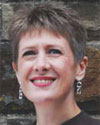Many of us spend our working hours assisting clients in a quest toward a more sustainable environment, including LEED certification. But have you evaluated the sustainability efforts put into your own office environment? Beyond that, are you sure your employees understand the reasoning behind sustainability?
Sustainability can be an overwhelming topic. One day it’s melting ice shelves and the next it’s “climategate.” Indoor air quality, heat gain, rainwater harvesting, locally sourced materials, vegetated roofs, geothermal systems, daylighting – the specifics can make a layperson’s head spin; so introduce sustainability in terms that anyone can understand, from engineers to assistants to janitorial staff.
Brilliant in its simplicity, The Natural Step (or TNS) is a useful tool for engaging staff in the sustainability discussion. Developed by Dr. Karl-Henrik Robèrt in 1989 in Sweden, TNS builds on a basic understanding of how our biosphere functions and how we are part of the earth’s natural systems.
It can be adopted in two steps. First, schedule small training sessions for your staff that outline the four principles of sustainability that make up TNS. Second, complete a group exercise that will illustrate the interaction and interdependence of ecological issues.
Introduce The Natural Step Framework. The Natural Step states that: “Left to its own devices, the earth is a sustainable system.” As we continue to learn, however, the accumulated impacts of human activity over the past two centuries threaten our continued well-being. An international network of scientists unanimously and publically concluded that human society is damaging nature and altering life-supporting natural structures and functions in three fundamental ways. They defined three basic principles that must be met to maintain essential natural resources, structures and functions that sustain human society. Acknowledging that human action is the primary cause of the rapid changes in nature today, they included a fourth principle that focuses on the social and economic considerations that drive those actions and the capacity of humans to meet their basic needs. To become a sustainable society, they say we must:
1) Substitute materials scarce in nature with those more abundant, by using all mined materials efficiently and reducing dependence on fossil fuels.
2) Reduce dependence on synthetic chemicals that nature cannot break down. Currently, synthetic substances are manufactured faster than they can be broken down by nature. According to the EPA, there are more than 70,000 chemicals that are in common use and every U.S. citizen’s fatty tissue contains at least 700 contaminants.
3) Reduce encroachment on nature and natural habitats. Human activity is breaking down natural systems faster than they can renew. Urban sprawl is one example of how development pushes wildlife out of its natural habitat. In addition, the demand for fresh water exceeds the world’s supply by 17%.
4) Treat others fairly and give them opportunities to lead a fulfilling life. If people throughout the world cannot meet basic human needs (clean air, clean water, food and shelter), the first three principles of sustainability will not be met.

Lori De La Cruz
Complete the group exercise . With the TNS framework in mind, divide staff into teams and give them this task: Design a spaceship that could leave earth and return in one hundred years with its crew alive, healthy and happy. Developed by Paul Hawken, co-founder of Smith & Hawken and author, the exercise requires the participants to create an ecosystem that will provide food, clean water, medicinal plants and fiber for a century. The fictional spaceship can be as big as necessary and it can receive light from outside. But it cannot contain escape hatches; and what happens on the spaceship has to stay on the spaceship for a century.
Encourage participants to discuss the use of raw materials. Remind them that the occupants must get along, entertain each other, work together and create a culture.
The participants should develop a deeper understanding of how systems work together, as well as gained the ability to step back and realize that the Earth is but a spaceship. They will also have a tighter grasp on what sustainability means and how it impacts every aspect of our lives.


Post a comment to this article
Report Abusive Comment